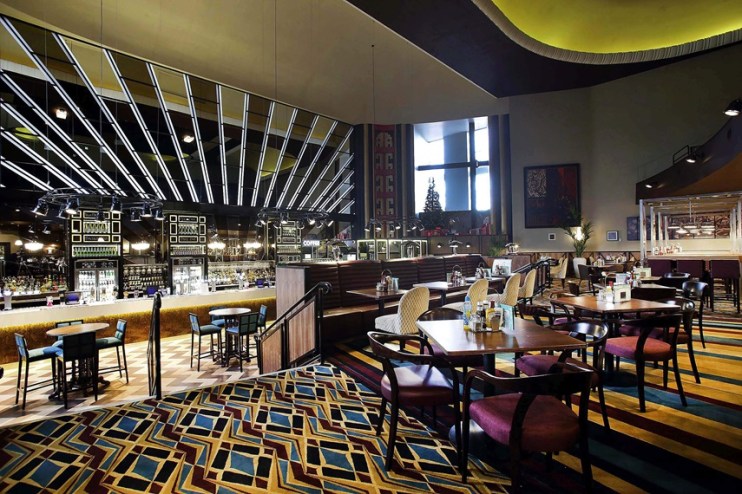Wetherspoon’s pubs are more than drinking dens – they’re cultural glue in a world without much of it

Come for the famed Wetherspoon prices, stay for the history: in many of Britain’s towns, “Spoons” has become the chief steward of civic heritage, writes Adam Hawksbee
You could easily miss The Wallaw in Blyth. Tucked just off the high street, this Grade II Listed art deco cinema closed in 2004 – the last film to be screened was Mel Gibson’s The Passion of the Christ. Perhaps fitting then that, nine years after the doors were shut, The Wallaw was resurrected. But this time, as one of the country’s most stunning Wetherspoons.
In many of Britain’s towns, “Spoons” has become the chief steward of civic heritage. In Darwen, Lancashire, a former Wesleyan Methodist Chapel first opened in 1866 is now a gorgeous boozer. In Harrogate, the Winter Gardens that once hosted visitors to the Royal Baths now offers decent, budget-friendly meals for families. Cinemas that were the peak of 20th Century entertainment, such as The Palladium in Llandudno or The Caley Picture House in Edinburgh, have become staples of the 21st century night time economy.
Many of these buildings are not just busy from morning until night, in towns that too often feel quiet. They are also undeniably beautiful. Careful attention has been paid to original features like stained glass windows, bank vaults and ticket offices.
When other companies are quick to throw up garish branding on the high street, Wetherspoons go with the grain of local identity.
When heritage sites become pubs, it has a dual benefit. It protects listed buildings, many of which are under threat: Historic England’s “Heritage at Risk Register” had almost 5,000 sites on it throughout 2023. And it ensures there’s a pub in communities where many locals are closing.
More than 500 pubs shut their doors in Britain last year – almost 10 a week, including some Wetherspoons that aren’t immune from post-pandemic pressures.
Converted pubs also protect the environment: Sir Tim Martin might not seem the archetypal eco-warrior, but refurbishments can reduce carbon emissions by over 60 per cent compared to new builds.
If you’ve been into any of these Spoons, you’ll know that they take history seriously. The walls are peppered with short snippets and old photos from the pub’s past.
The Wetherspoons website includes a meticulous database of these stories from all of their UK premises. A University of Cambridge academic even submitted a journal article recently on “The Historiography of Wetherspoons”, arguing that the snapshots “contribute to understandings of what constitutes popular history”.
This celebration of the past isn’t just the domain of academics or armchair historians. It matters deeply to the public. Research from Public First found that historic buildings were cited as one of the top things that gave people pride in their area – more than the high street, local football club or town market.
These old churches, town halls or banks make local identity tangible and give people a connection to family and civic history, so it’s all the more devastating when they are closed or knocked down.
In buildings that once brought communities together, Wetherspoons plays a more modern role. They offer safe and warm places for friends and family to meet. They provide free wifi and affordable food and drink. And they have become a core part of our collective rituals – whether that’s a pre-flight pint at an ungodly hour, a town centre pre-drinks before a birthday, or a Christmas Eve catch up with old friends.
Recently, a Facebook Group has seen thousands club together to buy drinks for total strangers through the Wetherspoons app: a rare and poignant instance of social media strengthening our social fabric.
There are too few businesses that take their civic role so seriously – turning a profit while also building a sense of pride. It’s unsurprising that in a recent poll, Wetherspoons was named the second most popular dining brand in the UK, beating McDonalds in third place and pulling well ahead of Nando’s.
But there’s one company that sits very comfortably in the top spot: Greggs. Maybe they should take some lessons from the Spoons heritage playbook? I’m sure you could sell plenty of steak bakes from a converted cathedral.
Adam Hawksbee is deputy director at Onward